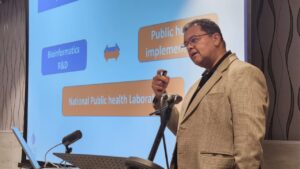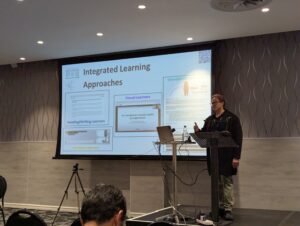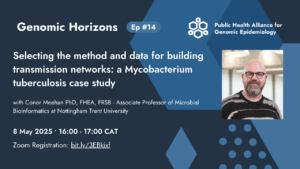
Public sequence repositories are critical resources for global microbial sequencing efforts, and are a cornerstone for the standardized exchange, analysis and archiving of sequence data. The Public Sequence Repositories Working Group will focus on working with major repositories to establish and improve community-driven standards for sequence submission, query and retrieval, and provide coordinated feedback on the development of new resources for public health infectious diseases users.
The working group will work to improve the usefulness usability of repository-dependent tools, resources, and workflows, including (but not limited to) APIs, user interface, documentation, source code, executables and example data. Where applicable, the workgroup will work with repository staff to develop and refine public health relevant trainings, workshops and hackathons.



